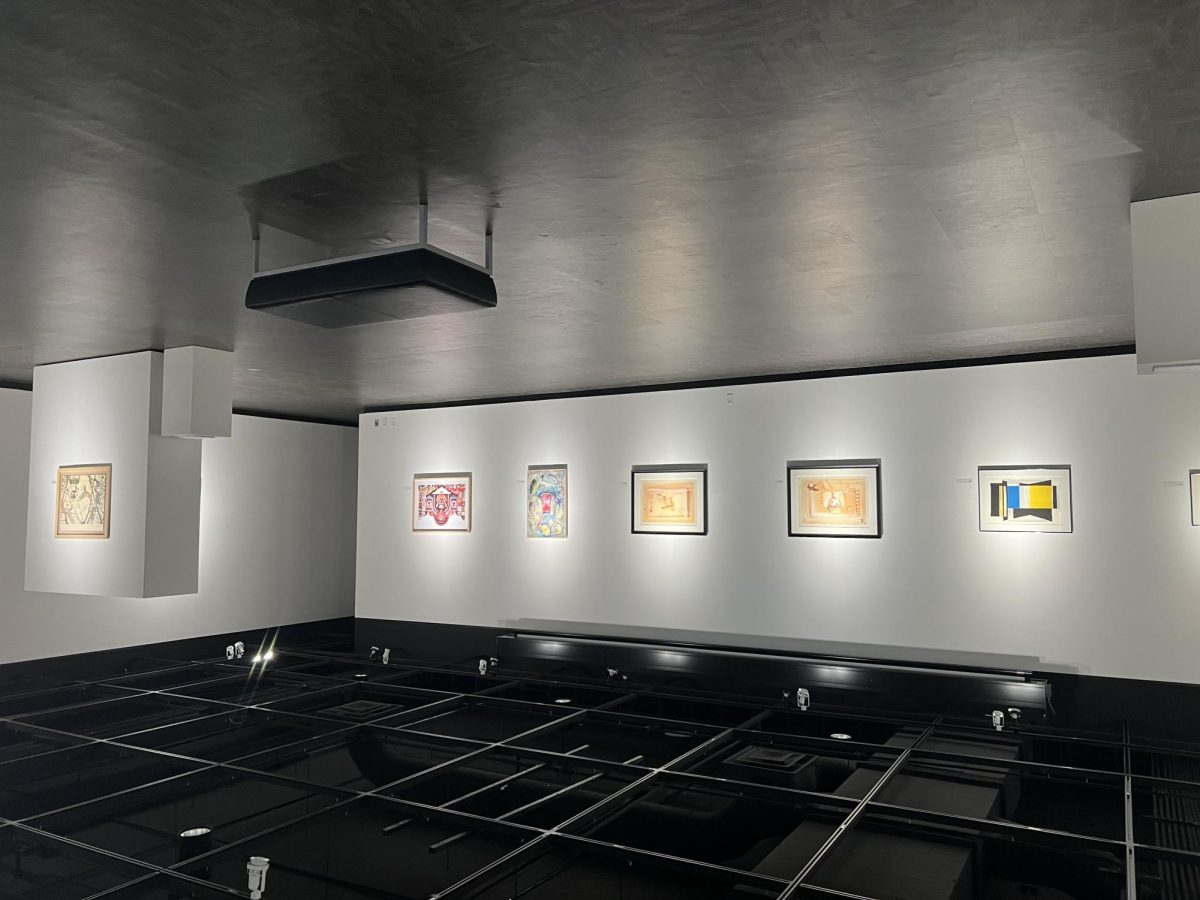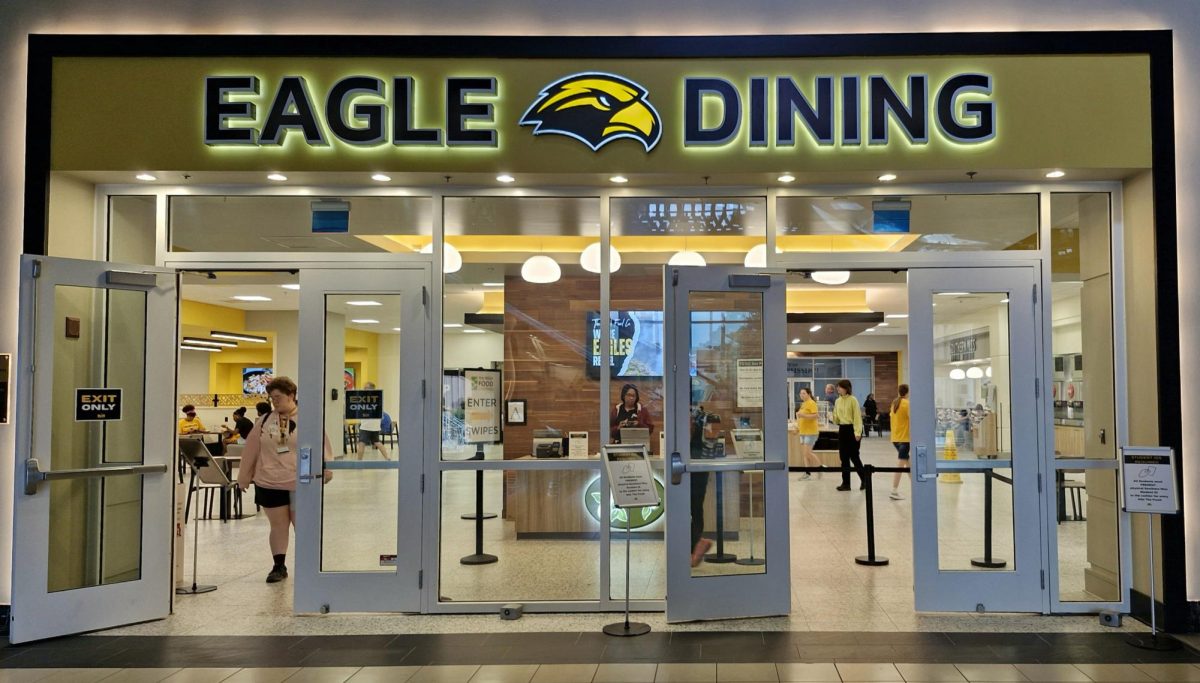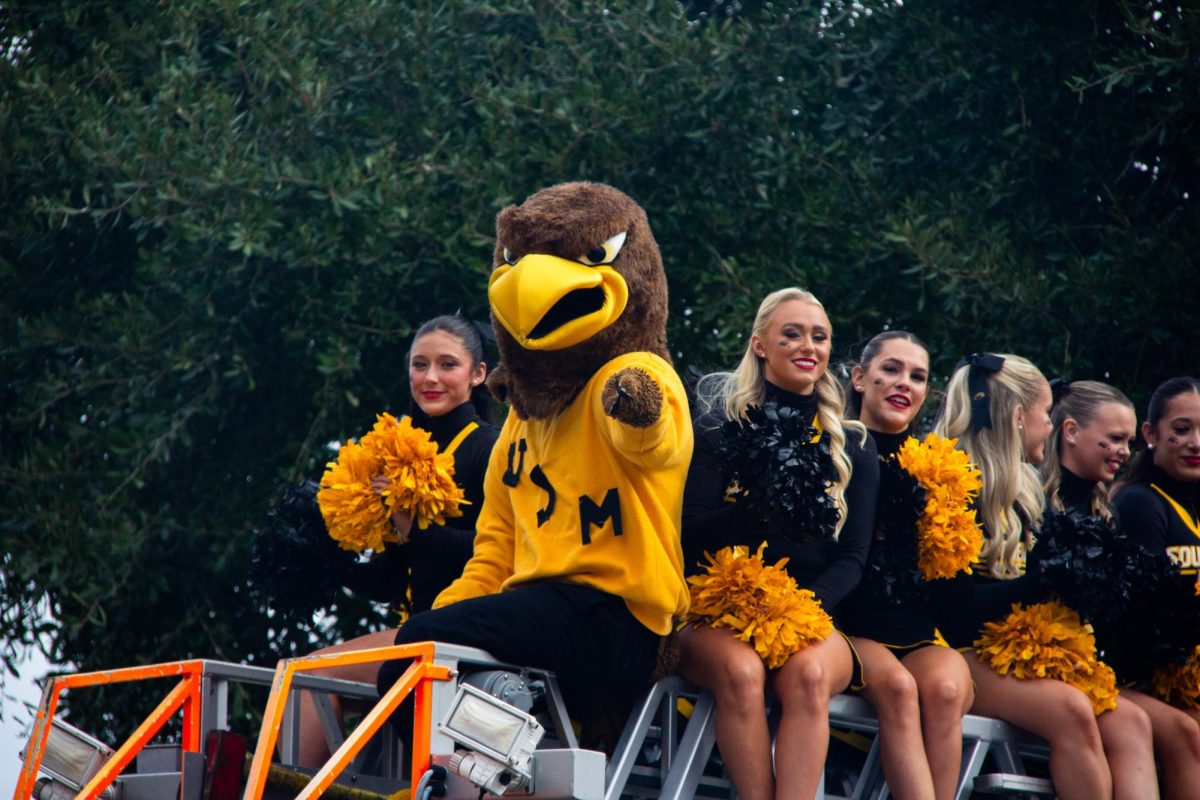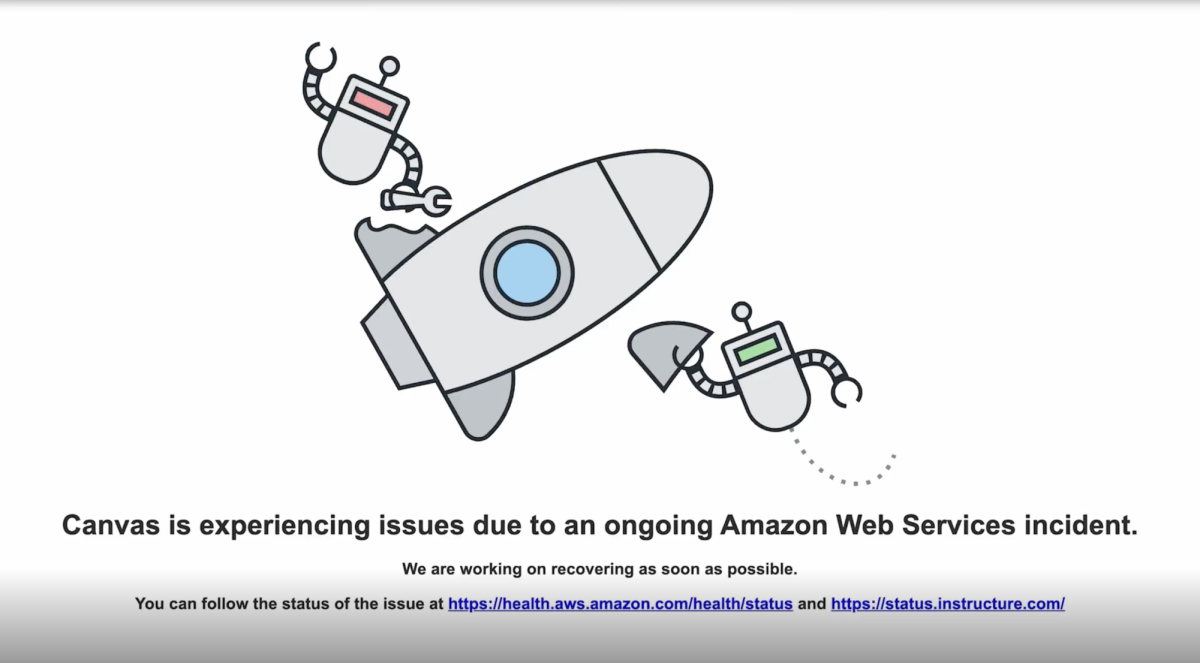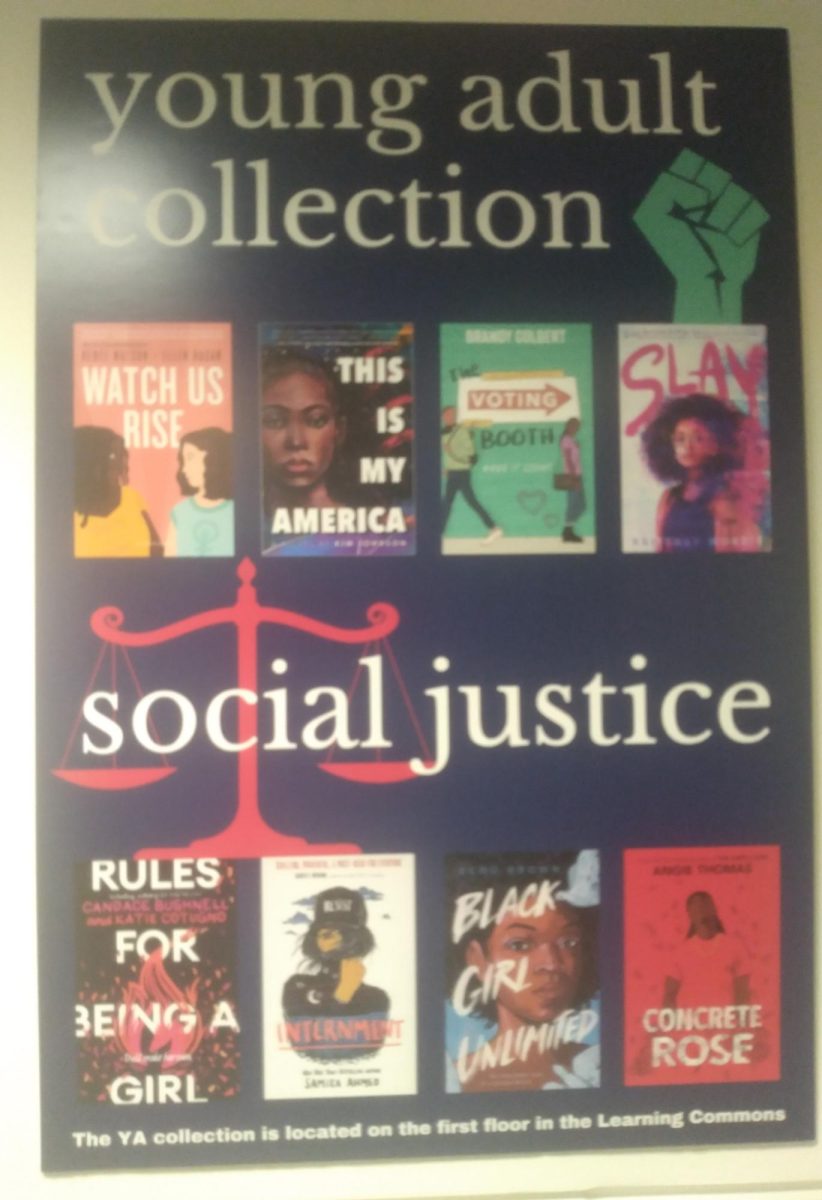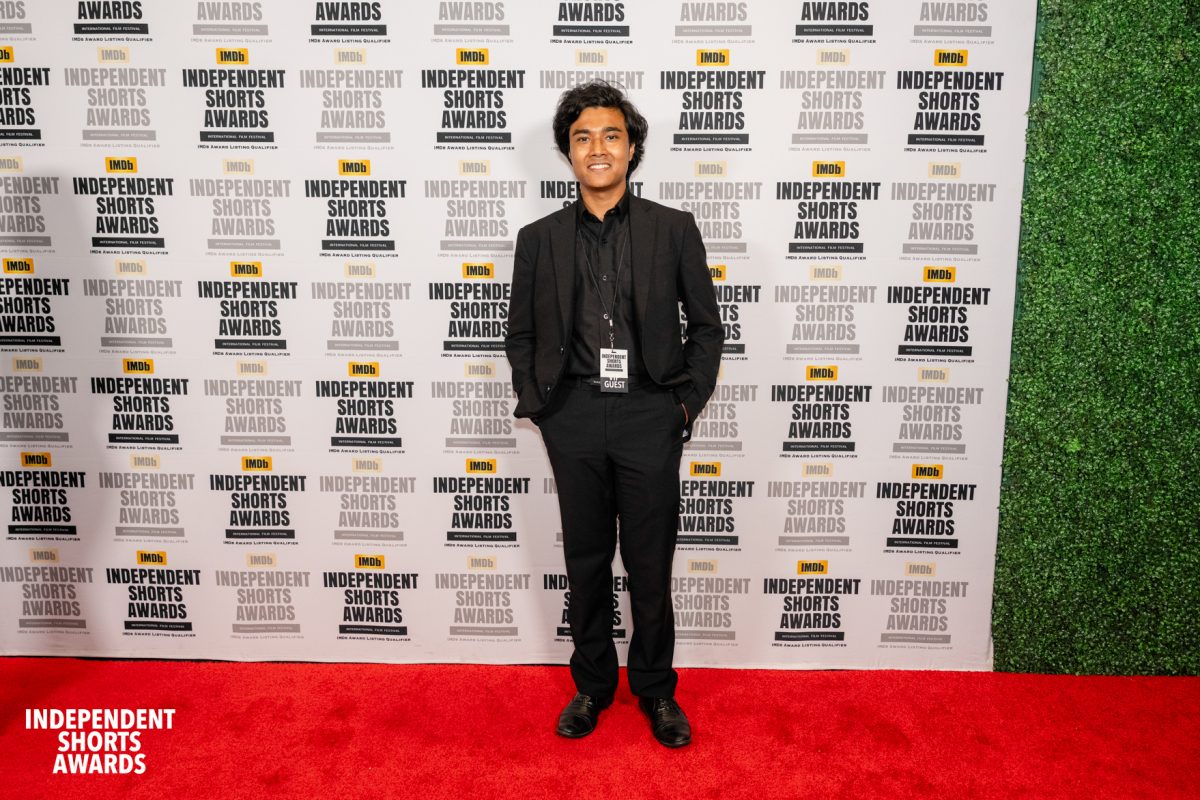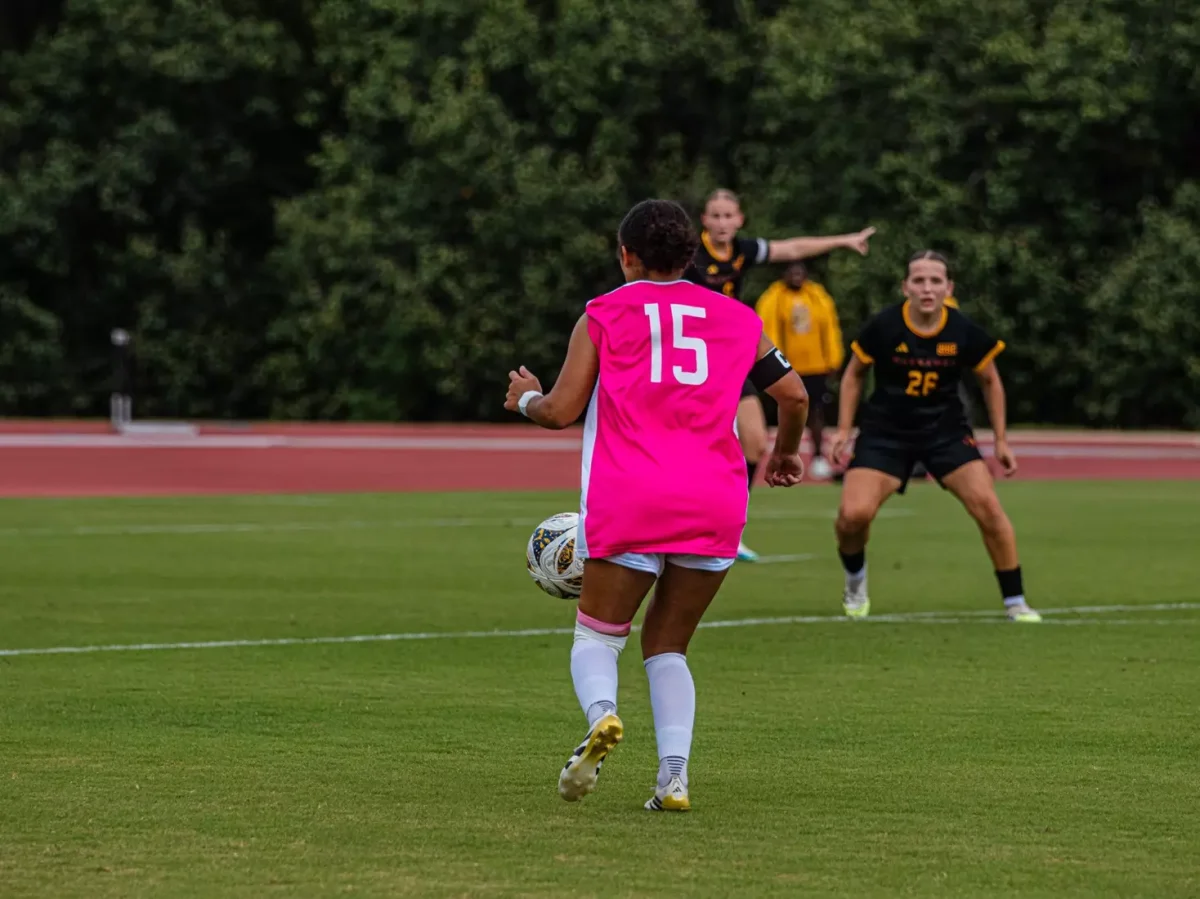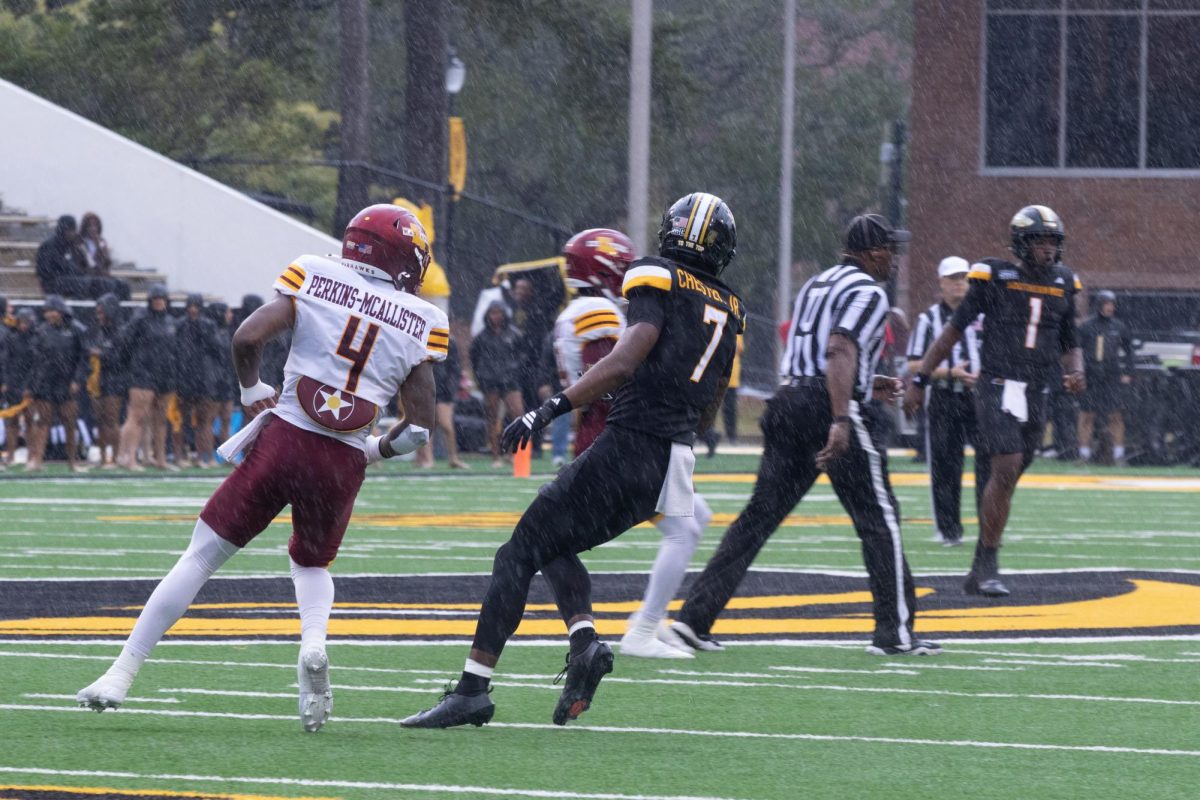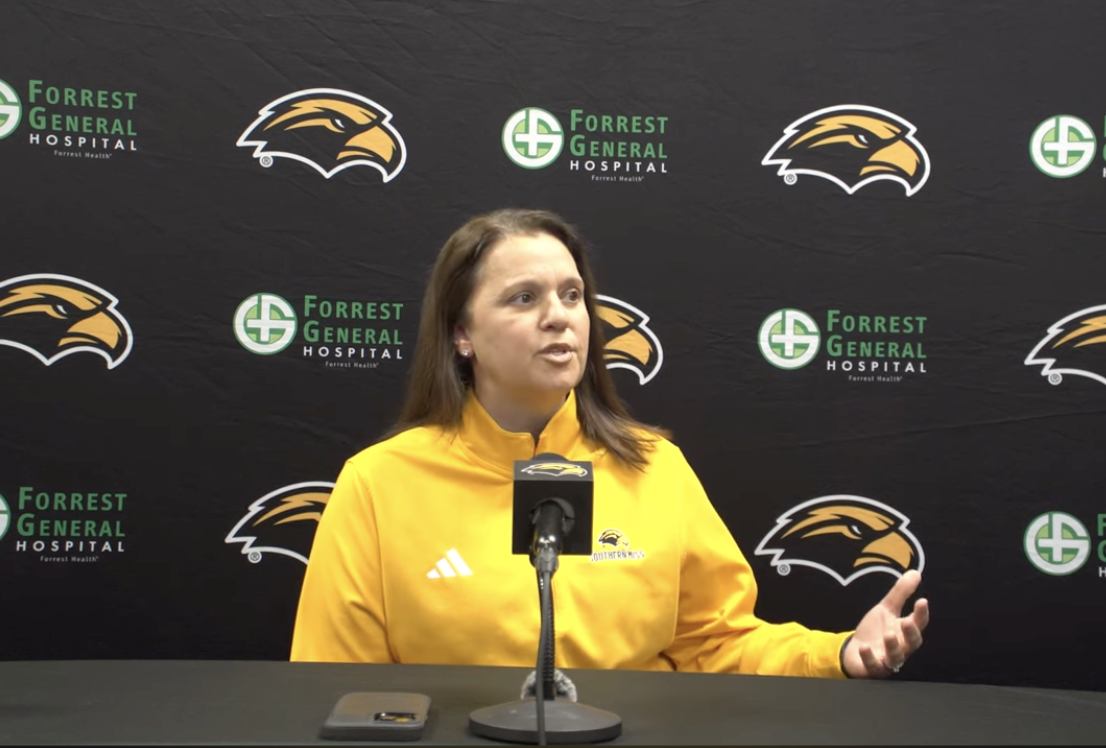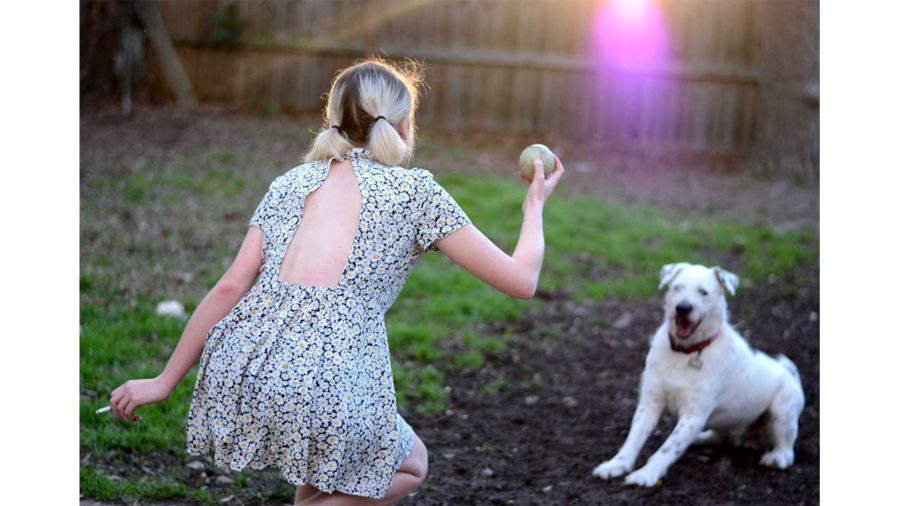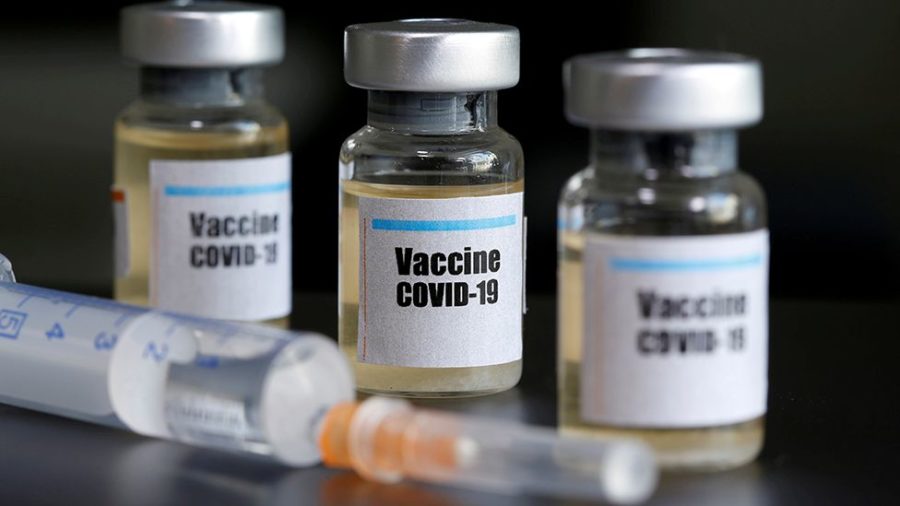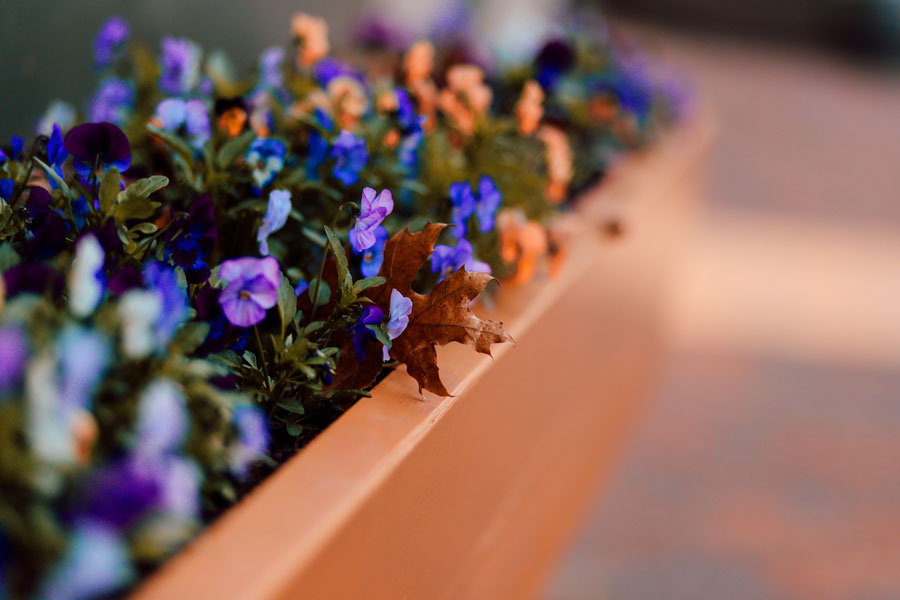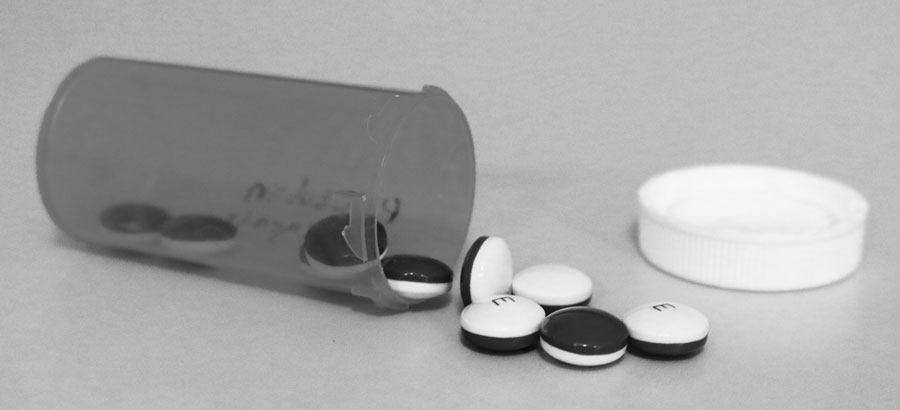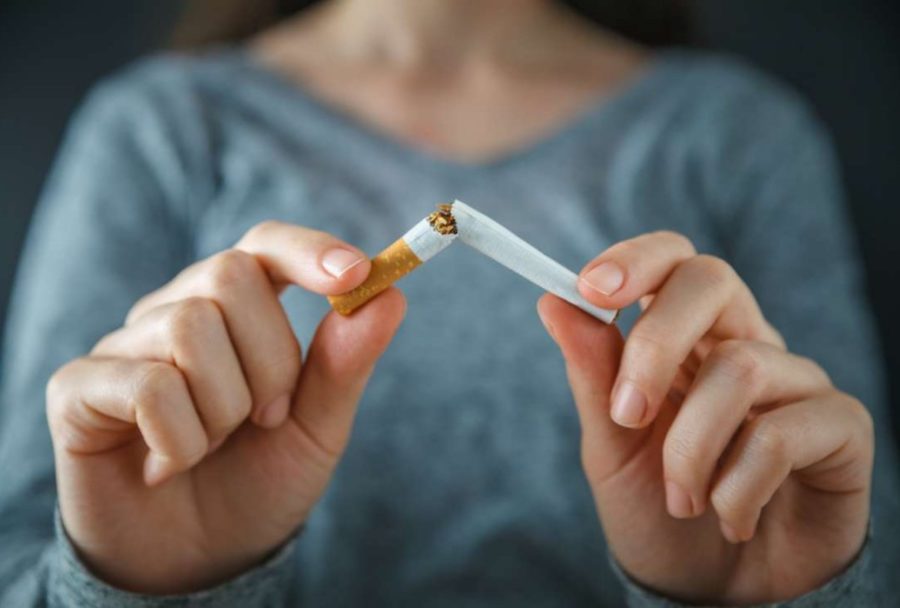Sunlight cradled the world like the arms of a parent, keeping the neighborhood still and hushed. Amid this quiet sits Spice World, a house which many Hattiesburg music lovers recognize as a venue for music, friendship and body positivity.
George and George, a pair of yowling felines, stalked across the windblown front yard in search of food. Somewhere in the past, addiction riddled a life with heavy rain.
USM psychology graduate Alissa – she prefers to not share her full name – lit a cigarette and perched catlike on the porch in a flower patterned dress. The venue is her every day, her home, her sunlit mornings and afternoons. Alissa is normal.
Her life had been different before she lived at Spice World. Not many people around her had seen through her unwavering functionality, beneath which she had hidden her other pained half.
In a past life, Alissa was one of many addicts who hid their substance abuse in daylight.
She consistently made straight-As and the Dean’s List at Oak Grove High School and Southern Miss. Her work ethic and intelligence are not easily matched: Not every student can graduate with a psychology degree, and fewer can do so while holding a job. According to a Complete College America study, only about 20 percent of students graduate college on time.
“When I took my first painkiller . . . I thought I felt love in my heart,” she said.
One of Alissa’s colleagues described her as put together. Nothing in her childhood suggested she would later develop a habit.
Many addicts, according to Alissa, have harsh childhoods, which she learned from Narcotics Anonymous (NA) meetings.
She said her childhood was loving.
“My family was great,” she said. “Everyone was great. We moved to America when I was in third grade, and it was the biggest f•••ing culture shock, because we moved to Alabama. It was the Bible Belt. Everybody went to church. I felt different – not being able to understand anybody because of their southern accent, nobody being able to understand me because of my English accent.”
Alone in a new culture, Alissa spent her formative years dealing with anxiety and depression. She said she remembers not feeling okay with herself from an early age and that she was not taught how to cope with mental illness.
Growing up under these conditions disallowed her to see the effects of depression and anxiety on her daily life. Such is the case of the human eye or a camera lens – an object loses focus if it is too close.
“It’s hard to see it when you’re in it,” she said. “Especially when you’re a kid. Nobody teaches kids about these things.”
It was in middle school when Alissa met Katy.
A multitude of factors create a lifestyle. One factor is habit formation, and habits can be transmitted between people, according to sociologists Luigi Berzano and Carlos Genova.
Katy and Alissa formed a habit of shoplifting – two pairs of adolescent hands swiping thousands of dollars of merchandise from shopping mall retailers.
However, Katy and Alissa understood each other, and their friendship was invaluable.
“I thought, ‘This person f•••ing gets me,’” Alissa said. “She was just as f•••ed up, just as depressed as I was – like hated herself as much as I hated myself. Looking back, I realize how f•••ed up it is for middle schoolers to talk about how they want to kill themselves. But we could relate to each other. . . . It was exciting, it was exhilarating – we would go into a store with a big beach bag, completely empty, and fill it up. We poured it all out onto the bed, looking at it, and felt alive.”
Her and Katy’s anxiety and depression worsened over time. They eventually agreed that if one decided to commit suicide, she would call the other so they could do it simultaneously. This agreement would reflect some of her future companionships, for which mutual self-harm became a basis.
In high school, everything changed. Alissa’s parents decided to move to Hattiesburg. Her life would begin anew for a fourth time, an existential shift that would further affect the balance of her depression and happier moments. Her social frame was becoming subject to a fragmentation over which she had no control.
Having to leave Katy devastated Alissa.
“[Katy] was the one person in my life who completely understood me, whom I could be myself around,” she said. “I remember there were lots of tears. That was the time I started self-harming. I wanted my parents to see what they were doing to me.”
The family moved at the end of Alissa’s 9th-grade year. After the summer, she began 10th grade at Oak Grove High School in Hattiesburg.
New Alliances
On her first day, Alissa met a young woman named Sandy, who invited her to lunch.
Some of Alissa’s time in Alabama, where she had occasionally drunk beer and smoked weed with unsteady friends in rural fields, shaped her alliances at Oak Grove.
“When I got to the lunch table, it looked like the school’s drug crowd,” she said. “I thought, ‘Hell yeah,’ because I knew how to drink, I knew how to smoke and these could be my friends. We had something to bond over. It was an easy way to get friends.”
Southern states like Mississippi have the most painkiller prescriptions per person, according to the Mississippi State Department of Health.
Alissa found her niche with the group, hanging out with them after school and hosting gatherings at her house when her parents left town. She cleaned in the mornings after, scrubbing away the remnants of the weekend’s simulated happiness.
She said she was still depressed, but having these friends made her think otherwise. She at least felt welcome somewhere.
Alissa’s friend circle became a ground for experimenting in new ways to reach for self-completion and love. The group began using ecstasy and cocaine. Despite this, Alissa maintained perfect grades, still worked and kept her habits hidden from her parents. She lived in constant duality, half of her persona existing beneath waves of forming addiction.
Some of these friends’ habits would later spiral upward and evolve into more sinister shapes – just like her addiction would, too. In the years following, a few of them passed away, and a few others fell out of contact with her.
Alissa grew acquainted with painkillers in her Oak Grove days. This discovery would follow her into college.
“It was like, ‘This is my favorite feeling in the world, this makes me feel alive, this makes me feel like I love myself,’” she said. “I was in a couple of abusive relationships that were centered around taking pills together. I didn’t realize how much I was being taken advantage of. I had a job, so I had money and could spend it all on drugs. I can never do painkillers again, because I loved them so much. . . . I thought these pills were making me feel love.”
Alissa’s circle of friends began to dwindle as they used harder drugs and engaged in illegal activity for money. Some friends, according to her, robbed houses. Her habits even leaked into the softer corners of her life – she often went to her school’s darkroom, a silent country of red light and relief, to use cocaine.
Eventually, Alissa and her friends tried liquefying and injecting painkillers for a more potent high.
“When I started shooting up was when everything fell apart,” she said. “And there wasn’t much left to fall apart in my life. I would shoot up at school, I would shoot up with toilet water and I got back with an abusive boyfriend.”
Eventually, she used painkillers to feel normal. They became her preserver, keeping her afloat in life’s ocean of stressors and anxiety. She no longer experienced intoxication.
One day, Alissa attempted to reach out to a teacher, explaining that she struggled outside the classroom. Unfortunately, her teacher reacted dismissively.
She stopped trying to get help afterward.
Strange Days
A lightning strike occurs when electrical charges from clouds and the ground interact and meet somewhere in the middle. The lightning begins at the cloud, cutting down toward a ground object’s positive charge, until the object sends its own bolt slicing toward heaven – God’s own uppercut punch.
The two halves of Alissa’s persona finally touched, meeting halfway between her family life and her social life. When this happened, her world was hit by a storm.
At work, Alissa took frequent trips to the restroom to use pain killers and pass the time. It was ritual, a communion with the self. When her coworkers caught on, they told her boss, who confronted her.
In the middle of a work day, her boss took her for a drive.
The pair exchanged words on life and its struggles in the car. Alissa even told her new chauffeur about the painkillers. When the drive ended in a park, Alissa’s boss made her call her older brother and tell him everything.
Alissa said her brother was devastated. He immediately made plans to come home and help.
“This was no choice of my own,” she said. “It was my boss’s choice. Because of that reason, that wasn’t my last time to use drugs. I wasn’t ready to quit. I was forced into it. But my brother and I made a plan, and I had to tell my parents.”
She told them – after seeing her friends and using again.
Her brother made her feel as comfortable as possible as she experienced withdrawals at home. He provided her with blankets, and together they watched movies.
The Southern Miss fall semester soon started.
“My parents kept me on lockdown for an entire month [that summer],” she said. “I wasn’t allowed to go out, and I wasn’t allowed to see my friends. So in my head, I still hated myself, I still thought my life was sh••, but I didn’t have drugs to cope with it. I wanted to believe I wasn’t going back to drugs, but I knew I would.”
She had been right.
Alissa said her freshman year was the worst year of her life.
One day that year, Alissa took a hard look at herself in the mirror. She was disappearing, she said, and looked like “an alien.” At roughly 90 pounds, she saw that her addiction was visible. Track marks punctuated her arms, and bags hung under her eyes.
“That year I felt like I didn’t matter,” Alissa said. “I wanted help but didn’t know how to get help. So I just kept living my lifestyle.”
Drugs, she said, were expensive. The money she stole failed to cover the cost. At this point, Alissa resorted to sex work.
“My main drug dealer was on house arrest at the time [for sex work charges],” she said. “It got to the point where it was like, ‘Maybe this is a good idea. I don’t care about myself. I don’t care about my body. I’m just going to do it.’ That was the absolute worst time of my life.”
According to a Widener University study, 10 percent of college students know other students who use sex work to support themselves. Alissa said sex workers are not identifiable by appearance and are regular people.
She made the dean’s list that year and still went to work despite all of this.
“I was strung out all the time, sleeping with these people for money and shooting up in every bathroom I went to,” she said. “And nobody even knew.”
Toward the end of her freshman year, Alissa decided she wanted to quit using. She said she could not see a future for herself, that the lifestyle she lived was too dangerous to continue. She had grown tired of shooting up to feel normal. Her life preserver, it seemed, was deflating.
On her own, Alissa decided to stop. She experienced withdrawals again. This time, though, it was her decision, and she was alone.
“When I was having the withdrawals, I would think to myself, ‘I am going to remember every single part of me that hurts, every bad feeling I’m having right now, because this is going to be the last time I do it,’” Alissa said. “‘I’m going to make myself feel it.’”
Opioid withdrawal symptoms include nausea and vomiting, abdominal cramping, diarrhea, blurry vision, rapid heartbeat and high blood pressure, according to American Addiction Centers. Furthermore, recovery can be the most dangerous stage of addiction, as the body’s tolerance for a substance is lowered but cravings remain the same. This increases the risk of relapse, overdose and death.
And with Love, It Ended
Alissa survived.
She said she wanted to work on loving herself and repair her relationship with her body. After the withdrawals ended, life became better. She stopped using painkillers and reconnected with an old boyfriend.
It seemed the life that had fragmented before her was coming back together. But as personal struggles often play out, the good and the bad came in waves.
Alissa and her boyfriend formed a new kind of communion, one crafted of cigarettes and cheap beer.
“I would have a $20 bill, and we would go get a case of Keystone and a pack of Marlboro 27s,” she said. “After a month and a half of drinking every single night with him, I thought, ‘F•••. I thought I fixed my life, and here I am doing the same sh••.’ I was still having to drink every night to feel like my life was okay.”
Alissa read musician Anthony Kiedis’s autobiography after hearing her boyfriend express interest in it.
“All of my friends make fun of me now, but I read it, and he’s an addict, been through recovery and all that,” she said. “In the book, he talked about going to NA and going to meetings and getting clean.”
Alissa decided to go to NA. She found meetings in town and said that at that time, they were what she needed. She even went to the yearly NA convention.
According to information gathered at the convention by na.org, the average time for NA members to stay clean is about 11 years. Of the NA members asked, 53 percent said the first meeting is the most important step to recovering.
It seemed for the first time that Alissa interacted with people who could relate to her lived experience. And for the first time, she said, she could feel like a normal person.
Alissa became personally involved with her NA program by helping with meetings and talking with newcomers. She conducted meetings, led discussions and cleaned the coffee cups. She said her time at NA was positive, as she could discuss her feelings without being judged.
She said her first couple of months without drugs or alcohol were the “weirdest.”
“It was the first time since I was in 9th grade that I wasn’t smoking or drinking alcohol,” Alissa said. “I had to learn how to interact with people without being f•••ed up, had to learn how to do my day-to-day sh•• without being on drugs. It taught me how to have friends and be accountable and responsible.”
Later, Alissa went with her best friend to Hattiesburg punk band Baghead’s first show. This incidentally became her next step in recovery.
“It was a life-changing experience,” she said. “I didn’t know this happened in Hattiesburg. These kids were going crazy. It was terrifying and exciting. I met all my current friends. They were so welcoming.”
Alissa said she had found something she really loved and of which she wanted to be a part. She said it felt similar to being in NA and being accepted, only better. At the NA meetings, she realized many of the attendees had ideological differences from herself. At punk shows, however, the people around her expressed ideals similar to hers. It was during this time she learned about feminism and social politics.
“These people were understanding, this music was great and I felt at home with them,” Alissa said. “I got involved with shows and started a band with some friends.”
Bandmate Lucille said being friends with Alissa has been “only positive.”
“She has a funny personality, and I love sharing stories with her about fashion, [Europe] and just random stuff,” she said. “She’s definitely a strong feminine force in my life who I can rely on for friendship.”
Lucille said she and Alissa played in an all-woman punk band together and that they discussed womanhood and social justice. Alissa was finally forming friendships based on mutual understanding and love.
“When you have that good friend group where you can share that punk femme energy and subject matter, it’s very uplifting and encouraging,” Lucille said.
Alissa’s friend Jesse, with whom she has closely bonded, said he feels comfortable and respected when talking to her.
“I trust her completely, and with me, my trust can only be earned,” he said. “Sometimes you have a friend who you can’t help but agree on everything with, because you don’t want to alienate them. But with her, she holds to her opinions and ethics no matter what topic and regardless of whether or not we totally agree.”
Jesse said Alissa is not afraid to be bold and is gentle with everyone – even animals.
“She treats friends like family and is always ready to take road trips or go listen to music. . . . She’s just an outstanding human being.”
Jesse’s, Lucille’s and Alissa’s larger friend group spend much of their time involved with music. Alissa said going to punk shows had a learning curve like anything else: She had to learn to participate without slipping into old habits.
“[Punk shows] feel like parties, and at a party I’m used to having a beer in my hand,” she said. “But in the past nine months, I decided I wanted to try drinking again. Me and [my friend from NA] didn’t do drugs anymore, but we wanted to try drinking. We quickly realized it was fine. We didn’t do it to feel better about ourselves or be more social. We just did it to have a beer every now and then.”
Alissa said this led her to her current mental, emotional and physical state. She no longer has the desire to use any kind of drugs – from weed to cocaine – and that she only drinks at shows or with her friends on occasion.
Alissa said she would advise attending NA. Nobody is alone in addiction, she said. Attending NA could be a step toward realizing that.
During the interview, a truck delivered a box of toys for Alissa’s dog, who intermittently voiced his opinion from a nearby closed window. Later, he danced in the waning sunlight that warmed the backyard as Alissa threw a well-used rubber ball.
The neighborhood, still quiet, would be full of life and music the following Monday. Somewhere in the past, addiction was winning, but here, in the present, everything would resume – including progress.
With Hattiesburg’s DIY music community and with her sobriety, Alissa’s life began again.
She felt love.

